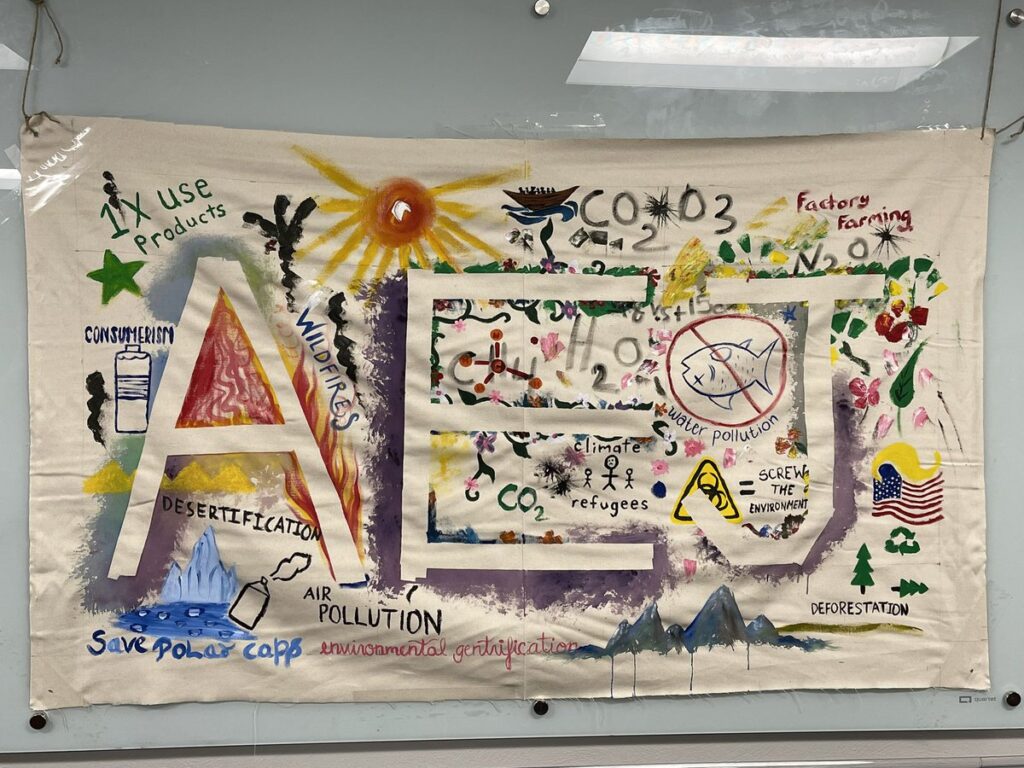Art for Environmental Justice (“AEJ”)
Art for Environmental Justice is an organization that uses the arts to raise awareness about the disproportionate impact of environmental issues on the lives of marginalized peoples, especially people of color. By emphasizing the complexity of the global climate crisis and the importance of working with affected communities through art, AEJ uses its platform to shift the narrative towards a more collaborative, inclusive, and hopeful approach that inspires action and drives change. Their mission is to inspire and empower individuals and communities to take action towards a more just and sustainable future.
AEJ offers a range of services that allow individuals and groups to explore the intersection of art and environmental justice. Among much else, AEJ is known for their eco-theater workshops, which provide a safe and creative space for participants to develop their skills and create powerful performances that address environmental justice issues. These workshops are held in local communities, organizations, or institutions, and work collaboratively with participants to create impactful productions in which everyone has a stake.
In addition to their workshops, AEJ produces official theater productions that showcase environmental justice issues and strive to inspire action towards creating a more equitable and sustainable world. They use the power of storytelling to engage audiences and promote awareness of critical environmental issues, offering creative advice and support for individuals and groups who want to produce their own eco-plays. AEJ believes that everyone has the potential to be an artist and a changemaker, and remains committed to helping people use their creativity to make a difference for the sake of those facing ecological, health-related, and social detriment due to ecologically harmful practices.

City
Country
Region
Year of Creation
Featured Project

Resources
Gale, Brennecke. “Art as a tool for environmental justice.” Stanford Doerr School of Sustainability, 19 Apr. 2023, https://sustainability.stanford.edu/news/art-tool-environmental-justice.
Gupta, Tanvi Dutta and Emily Polk. “EJ Music, Eco-theater, community art-making, an inaugural EJ Anthology and More: the EJWG arts and humanities year in review.” Medium, 25 May 2023, https://medium.com/ejstanford/ej-music-eco-theater-community-art-making-an-inaugural-ej-anthology-and-more-the-ejwg-arts-and-c13e1bb51bc5.
More Information
IMPORTANT: Profile pages for all collectives are in permanent development and have been built using information in the public domain. They will be updated progressively and in dialogue with the organizations by the end of 2024. New features and sections will be included in 2025, like featured videos, and additional featured projects. Please contact us if you discover errors. For more information on mapping criteria and to submit your organization’s information to be potentially included in the database, visit this page

